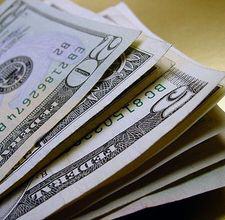Search Results for 'traders'
LIVE from the NY Traders Expo
 On Tuesday morning at the NY Traders Expo, I’ll be teaching live at 8am ET. I hope you can make it to my session if you’re anywhere around NYC. If not, be sure to register for the Webcast so you can attend virtually!
On Tuesday morning at the NY Traders Expo, I’ll be teaching live at 8am ET. I hope you can make it to my session if you’re anywhere around NYC. If not, be sure to register for the Webcast so you can attend virtually!
Specifically, I’ll be discussing Unique Traits of High-Performance Traders. I have a lot of good stuff planned, plus I’ll share the setups which have been working well for me recently as well as the best setups I see in the market right now. I’m excited about being there and giving you some insights for better trading.
Make plans to be there by pre-registering or just show up (it’s free)!
Trade Like a Bandit!
Jeff White
Producer of The Bandit Broadcast
Get our free newsletter to keep up!
Follow @TheStockBandit
Houston & South Texas Traders…
If you’re a Houston trader or are located around the South Texas area, make plans this Friday to see me present live in conjunction with Worden!
![]() On both Friday & Saturday (Feb. 10 & 11) at the Worden TC2000 workshop, I’ll be teaching live. It’s at The Woodlands Waterway Marriott (1601 Lake Robbins Drive, The Woodlands, TX 77380). The workshop starts at 10am and ends at 4pm, and I’d love to see you there either day.
On both Friday & Saturday (Feb. 10 & 11) at the Worden TC2000 workshop, I’ll be teaching live. It’s at The Woodlands Waterway Marriott (1601 Lake Robbins Drive, The Woodlands, TX 77380). The workshop starts at 10am and ends at 4pm, and I’d love to see you there either day.
Specifically, I’ll be discussing Formulating Your Trading Plan (Friday 1:30 – 2:45) and Locating Trades & Evaluating Risk (Saturday 11:15 – 12:30). I have a lot of good stuff planned, plus you’ll see the new version 12 of TC2000. I’m in the rotation with Michael Thompson and Peter Worden, so I’m excited about being there and giving you some insights for better trading.
Make plans to be there by pre-registering or just show up (it’s free) – but get there early, it’ll be a full house!
Trade Like a Bandit!
Jeff White
Producer of The Bandit Broadcast
Get our free newsletter to keep up!
Follow @TheStockBandit
DFW & North Texas Traders…
![]() If you’re a DFW trader or are located around the North Texas area, make plans next Friday to see me present live in conjunction with Worden in Dallas!
If you’re a DFW trader or are located around the North Texas area, make plans next Friday to see me present live in conjunction with Worden in Dallas!
On both Friday & Saturday (Dec. 9 & 10) at the Worden TC2000 workshop, I’ll be presenting in the afternoon. It’s at the Doubletree Hotel Dallas near the Galleria (4099 Valley View Lane
Dallas, TX 75244). The workshop starts at 10am and ends at 4pm, and I’d love to see you there either day.
Specifically, I’ll be discussing Preparing Like a Top Trader in Today’s Market. I have a lot of good stuff planned, plus you’ll see the new version 12 of TC2000.
Make plans to be there by pre-registering or just show up (it’s free)!
Trade Like a Bandit!
Jeff White
Producer of The Bandit Broadcast
Follow TheStockBandit on Twitter or get our free newsletter to keep up!
How Traders Get a Raise
 Every business has overhead (some more than others), and although you may not have a brick-and-mortar storefront, you certainly have overhead as a trader.
Every business has overhead (some more than others), and although you may not have a brick-and-mortar storefront, you certainly have overhead as a trader.
It’s business 101 that to make more money, you either bring in more revenue or you fatten your profit margin by cutting costs. Plenty of posts on this blog discuss ways to accomplish the former, but today, we’ll talk about the fastest way to achieve the latter.
The Elephant in the Room
Traders rarely stop to consider the biggest expense they face, which is usually commission costs. The fees we pay to enter and exit trades are no doubt a cost of doing business, but once you’ve hit a certain experience level with your trading, it’s likely that your attention has diverted to strategy and execution (which is fine). By default, however, you’ve ignored one expense which can easily run into the mid 5 figures over the course of the year if you’re an active trader.
Even if that’s not the case with you, it’s still worth taking note of just how much you’re paying on commissions. Newbie traders recognize this when they come to the market with small accounts, and they soon realize that they’ll need a sizeable move in the stock just to overcome their costs.
Regardless of your situation, take heart! There is a solution…
NEGOTIATE YOUR COMMISSIONS!
Aside from why you should do this, here are a few reasons why you can do this…
Apples to Apples. Transaction costs have come down tremendously in recent years for everyone. Technology has greatly improved, which isn’t cheap, but the fact is that when it comes to the standard trading platform features, virtually everyone has similar technology. Occasionally you’ll find something very unique, but you can most likely accomplish your trading on a variety of platforms, which means you aren’t tied down to any single brokerage. They know this.
Move the Line. Every brokerage has the capability to lower your commissions. So, get creative if you need to. Work the numbers and find out if there’s a threshold you need to meet in terms of monthly trading volume in order to get an improved rate. Find out if they’ll waive your platform fee (if you pay one) at a certain level, or switch from a per-trade to a per-share commission structure.
The Advertised Rate is a Starting Point. The displayed homepage commission price which brokerages show is a number most people will gladly pay, but it doesn’t have to be “the” number. And the more active you are as a trader, the more you should view it as simply a starting point for negotiations. Every brokerage knows their margins, and they know the rock-bottom price which they can offer. I can guarantee you that’s not their advertised rate. They have room to move, and often all it takes is simply knowing you can ask for something a little lower. And while these are certainly not used-car salesmen, the same principle applies…if they let you walk away, then they really can’t deliver the price you’re asking for.
Competition Abounds. Brokers are highly competitive and motivated to get your account, and they know there’s lots of turnover in the industry. That means they can lure you away from your current firm, but it also means if they don’t retain your business you’ll go elsewhere. So if you’re looking for a new platform to trade on and you’re hunting brokers, ask for a reduced rate. Odds are, if you find it offered elsewhere, you can get that rate matched. And even if you’ve been with your current brokerage for quite a while, there’s no harm in asking for a lower commission rate. Remember, if they don’t keep you, someone else will earn your business, and they don’t want to lose you.
You don’t have to be a smooth talker to pull this off. Call up your broker and ask what they can offer you. Worst case, they tell you no and you’re exactly where you are now. But in many cases, you’ll be able to cut down your transaction costs, which can lead to a big pile of money by the end of the year. How is that not worth asking for?
Trade Like a Bandit!
Jeff White
Producer of The Bandit Broadcast
The Envy of Other Traders
If you have traded for virtually any length of time, you’ve no doubt found yourself on both ends of the spectrum when it comes to winning and losing.
At times we can do no wrong, nailing trades with concise entries and the ability to scale out at our own prices. It’s nice. And during those times when it feels much more easy to fatten our accounts, it seems like such a foreign concept to lose. How could I ever have done that?
The Grass P&L is Greener on the Other Side
Other times, we find ourselves dead wrong with terrible timing. We’re dead wrong, and it feels like the moment a trade is entered, it begins moving against us. Frustration builds while confidence erodes, and you wonder if there’s something else you should try – anything to stop the bleeding. To top it off, knowing that we’re building the accounts of those guys on the other side of our trades is completely awful!
When we’re at our best, the traders we’re going against know the P&L is greener on the other side. Our side. It’s not about keeping “them” down, but rather ourselves up with consistency.
If there is one reality of trading, it is that we will indeed have losing trades. But how can we find ways to increase our odds of staying on the winning side more often?
5 Ways to Maintain an Edge
Put Yourself in Their Shoes. Considering the other side of your trades on a regular basis can give you a valuable taste of the emotions driving your competition to take action. Recognizing the greed or fear of traders by way of the price action will give you a valuable edge, whether by way of timing a new trade or adding to your confidence in an existing position.
Remember that Cash IS a Position. At times you’ll need to move to the sidelines, and others will wish they were with you. Feeling like you need to be in something all the time is a major but common mistake. When you see no great opportunities, sit on your hands.
Maintain High Standards. This goes hand in hand with the previous point, but those who overtrade are not keeping the bar set high. They’re lowering the barriers to entry, so to speak, by accepting mediocre setups, sloppy patterns, and generally trades with risk/reward profiles that aren’t in the upper echelon.
Zig and Zag. Many of us do have a directional bias with our trading, which may simply be a part of our nature. But trading isn’t about making ourselves comfortable – it’s about extracting profits. Sometimes that requires us to lean against or, dare I say, step a little outside those outer boundaries of our comfort zones. Consider the occasional short sale, because there are always weak stocks (even in a bull market). And even within a bear market, there will be strong stocks to focus on. Keep an eye on the outliers, there’s opportunity there.
Don’t Hesitate. When you see the writing on the wall that you’re poorly positioned (on the wrong side, or on the sidelines), act immediately. Hesitation opens the door for doubt, which results in costly delays. You either end up chasing a stock too far and end up with a poor entry, or you miss it entirely. So the moment you know you need to be out of a trade or into another, do it. Stay sharp, and show up focused. Speed is everything in this game, and absolutely includes your decision-making.
Trade Like a Bandit!
Jeff White
Are you following me on Twitter yet?
The Biggest Enemy of Traders
The day stands out in my memory quite vividly, but only because it wasn’t all that long ago. I had dug myself into a hole early in the day, and while I wasn’t too deep to get out of it, I was definitely frustrated. Let’s just say the guys taking the other sides of my trades were doing alright on this particular day. 😉 I had seen no swing trading plays to initiate, and the day trades were acting fickle. Shorts would break down with no conviction and bounce immediately back up, and the only stocks showing strength were doing so on poor volume, which meant they couldn’t be trusted as buys.
I had taken several losing trades in succession, and was having a dilemma of whether to take a break, call it a day, or stay and battle it out in an effort to recover. At about that same time, a thought crossed my mind as to why I was in this position, and I recognized it instantly. I had allowed myself to fall victim to the biggest enemy of today’s traders: overtrading.
While the shorts and longs I had traded were clearly not moving with conviction, the real reason I was underwater was due to my taking trades which were merely mediocre. I wasn’t waiting for my pitch, and rarely does that kind of impatience pay off in trading.
The Temptation of Convenience
It’s so incredibly easy to do these days. In fact it’s downright convenient to buy and sell stocks. With lightning-fast executions and dirt-cheap commissions, those unplanned trades tend to come along frequently and easily if we allow them. And yet, have you ever noticed how few of those impulsive trades yield great profits?
My work ethic has never been questioned by those around me. I never want to be still, so I’m always striving to move toward some kind of goal in several areas of life. Many of us face that internal pressure to stay ‘busy,’ but let me make one very important distinction: in trading, hard work does not equate to high activity. Just because you might be busy placing continual trades doesn’t mean you’re being effective or efficient.
Exercising Some Self-Control
At times we all have to remember that there’s serious value in simply concentrating on the correct things. Believe it or not, that means there will be occasions when not trading is best! Most of the time though, it’s going to mean that we formulate a flexible but well-defined trading plan, and then stick with it. Hunt continually for the setups you love, but don’t ever lower your standards out of boredom or for the sake of activity – that’s never worth it. Discipline plays a major role, so if you don’t have it, you’re in no place to be trading until that’s under control.
As you become a better trader and gain more experience at the screens, you’ll also find ways to stay away from those market conditions which prompt you to overtrade. Keep the phone handy. Have a stack of books to browse if the market isn’t moving. Go run some errands or catch a movie.
But by all means, when your ideal conditions do emerge in the market, get busy!
Jeff White
President, The Stock Bandit, Inc.
Swing Trading & Day Trading Service
www.TheStockBandit.com
How Do Great Traders Control Emotion?
Great traders are often thought of as talented anticipators of direction or momentum, or as exceptionally skilled risk managers, which many are. But an oft-overlooked trait which should always be mentioned is the successful trader’s ability to control emotions.
Use Your Head!
I definitely think every trader struggles with controlling our emotions from time to time, and it is one hurdle which trips up many would-be traders that never choose to get beyond it. And it is a choice – either you control your emotions, or your emotions control you.
I’ve traded in the same office with guys who broke keyboards over a $500 loss, and I’ve seen guys who can literally take a nap when up 6 figures on the day they are so cool, calm and relaxed – just total control. The difference between them wasn’t their account size either – it was in their minds.
Mapping a Path to Profits
I suppose the simplest approach for getting to where you want to be is that you seek to build that control over time. There’s a natural tendency to treat trading like watching a horse race and get excited or upset, depending upon the outcome.
However, the best traders have found the boundaries of their comfort zone, and they stay right on the edge of them. They know before they put on a trade what the worst-case scenario entails, and they proceed with the trade with that in mind, able to accept it if it happens. They stay within their risk limits by doing so. Further, they know that if they put on too much risk, they’ll not only lose more than they should, but they’ll likely make some poor choices along the way by focusing on the loss rather than making the best decision at any point along the way.
A great trader is able to think clearly from start to finish, and while there may be some mild irritation (enduring pullbacks), minor impatience (if the position stagnates), or slight satisfaction (as the trade begins to work), they avoid letting those emotions drive their behavior. They truly do stick with their plan, making modifications to it not on a whim, but only when absolutely necessary.
A Simple Solution
The best way to achieve that state of control is to chose to trade small enough that the outcome of any one trade doesn’t carry huge meaning. That will help to formulate a good habit of focusing on the trade, not the P&L (which is where emotions come from usually).
As you gain more control, you incrementally add more risk over time as you are comfortable, gradually increasing that comfort zone but not trying to achieve it overnight.
Develop good habits with small trades, and then slooooowly build your trade size along the way. If you strike the right balance between growth over time and clarity right now, you’ll be well on your way.
Jeff White
President, The Stock Bandit, Inc.
Swing Trading & Day Trading Service
www.TheStockBandit.com





